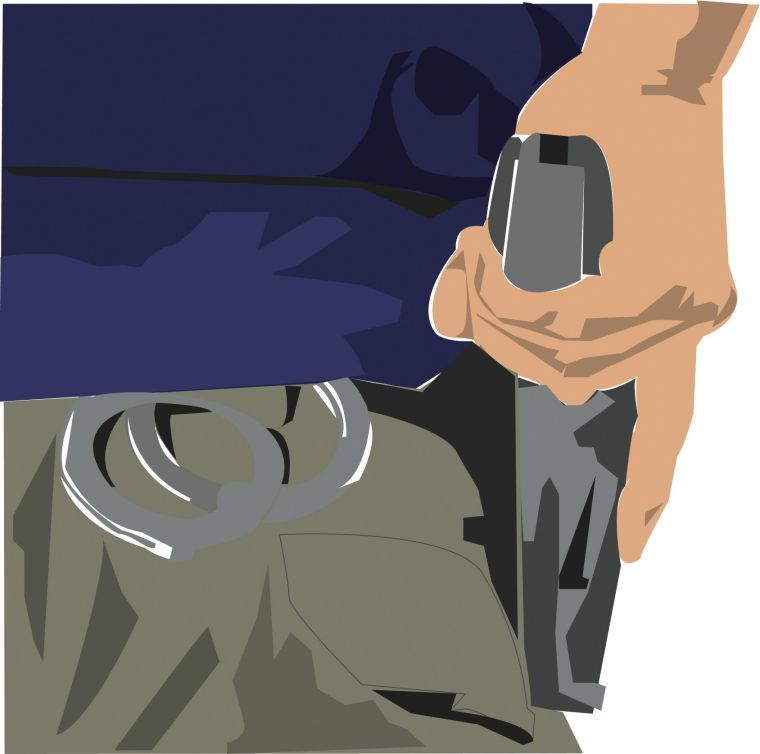Guns and WU, better safe than sorry
January 23, 2013
Sixteen mass shootings occurred in 2012, leaving at least 88 people dead–including 20 elementary school children in Newtown, Conn. Two of those shootings occurred at colleges.
The latest college shooting incident happened in Texas, just north of Houston. Two people got into a fight, which led to shots being fired on the campus of Lone Star College System. No one was killed, but four people were wounded as a result.
“On campus I feel safe, but near campus I wish I was carrying again,” said Nicholas Caspar, junior mathematics education major.
In the latest months, shootings, guns, and security have come under the national spotlight. The Review wanted to know where Washburn stands in this nationwide awareness of gun violence and increased security.
Just last week, President Barack Obama signed 23 executive orders involving gun and security statutes. Those orders include improving gun ownership databases, improving school safety and mental health services, and allowing for more governmental research into the causes of gun violence. Vice President Joe Biden also gave a speech last week to the mayors of the country’s major cities regarding proper gun safety and “common sense judgements.”
The focus of this article will be campus safety and security, as well as some discussion regarding guns on campus.
“We have a very safe campus,” said Jerry Farley, Washburn President. “Our crime numbers are unbelievably low.”
According to the 2012 Crime Awareness Report, the number of weapons arrests on campus last year was zero. In police chief Dean Forster’s ten years on campus, he can only recall two incidents of weapon offenses at Washburn.
“We’re certainly grateful that we’ve never had a major issue with guns,” said Forster.
A 41-year law enforcement veteran, Forster first arrived at Washburn 10 years ago as an interim police chief. He was so impressed with the level of security on campus, that he stayed.
“If I didn’t think we [Washburn] was serious about security, I wouldn’t have stayed,” said Forster.
Washburn takes security so seriously, in fact, that the university’s police branch employs 15 full-time, fully-trained officers. Forster himself even received FEMA certification for emergency preparedness, and is currently reviewing a proposal for an active shooter response plan, prepared by one of his student officers.
“February is our big training month, and of course we keep up to date on that year round, but we’re always working to bring it all together,” said Forster.
Forster also wants students and staff to be aware of the crimes that occur on campus. He encourages people to sign up for the iAlert system, and check the campus crime report for more information.
“If there’s a crime on campus, we want people to know about it,” said Forster. “We have nothing to hide.”
That transparency extends into the area of concealed carry. In Kansas, concealing a weapon is legal as long as the person has passed the required training, and has their permit with them. Concealed weapons are not allowed in public areas, including on campus.
“We will comply with statutes, and if they change, we’ll comply with those changes,” said Farley. “We prefer not to have weapons on campus, because we have trained officers to handle any situation.”
Forster says that he’s heard a “mixed bag” of opinions from students, some adamantly opposed to the idea of concealed carry being allowed on campus, and some who are in favor of the idea.
“There’s a lot of well-meaning people that could help, but we don’t have time to sort them out in case of a situation like that,” said Forster. “As long as we can maintain a safe environment, everything else is a non-issue.”
One common statement among administration is about how students can help keep campus safe.
“If you see something, say something,” said Farley.
The police department has 92 cameras scattered all over campus to help them see potential threats, or things as simple as illegally parked cars. Those video feeds are monitored 24/7 by officers in the department’s communications center on campus. And, according to Forster, the cameras work.
“We caught the Topeka PD helicopter crash on camera when it happened,” said Forster. “I’m a big believer in the cameras; it gives people a good safe feeling.”
That feeling of security is welcome on campus, in a time of heightened awareness of crime, particularly shootings.
“One has to be pragmatic,” said Farley. “If we let our emotions run away from us, it doesn’t produce good results.”






